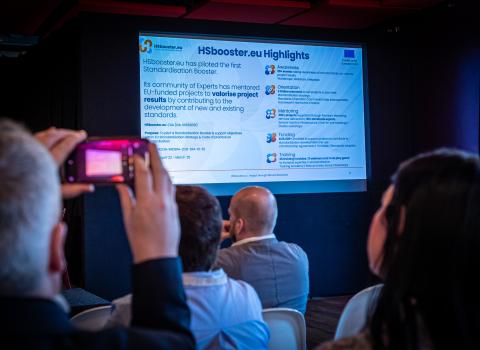Universities are pleased to see progress in moves to make research jobs more stable and desirable, but say they can’t implement the plans alone

Member states are set to endorse a joint framework for improving the working conditions of two million researchers in Europe, but stakeholders are calling for changes to the draft document.
The draft recommendations, currently debated in the EU Council, call for longer-term employment contracts and training for skills useful outside academia , whilst endorsing a plan to track labour conditions for researchers across the continent.
The recommendations won’t be binding, but will give crucial impetus to a new framework that sets out what universities, public authorities and others can do to improve the employment conditions of researchers.
The European Commission proposed the plan in July, in response to calls for EU action to tackle the poor labour conditions faced by researcher. The situation has been growing increasingly dire in recent years, with around half of post-docs reporting they have little access to social security or other benefits in a survey conducted in 2018 and 2019.
Everyone is pleased policymakers are finally taking action, but universities say there are a few shortcomings to fix before EU research ministers sign off the recommendations on 8 December. Outstanding issues include lack of recognition of larger structural issues and details on how the reforms are implemented.
Funding stability
Silvia Gomez Recio, secretary general of the Young European Research Universities Network (YERUN), says parts of the recommendations call on universities to take action but overlook the limited role universities have in setting employment conditions.
“Universities can change some things, they can ensure rights and freedom of research is there,” Gomez tells Science|Business. “But in many countries, the salaries, conditions and responsibilities attached to contracts are defined by law.”
One provision in the draft calls on institutions to set themselves thresholds for the maximum number of researchers they can hire on fixed-term contracts, to encourage more permanent employment.
This is at odds with how universities fund their work, says Mattias Björnmalm, secretary general of the university association CESAER.
Most universities rely on public funding agencies to support their research, but this financing is increasingly unstable, with universities relying more and more on short-term project funding. Björnmalm says a conversation with public funders is necessary to figure out how to improve funding stability.
“Universities cannot unilaterally take on financial commitments without having the financial backing. They need to know they can pay these people,” says Björnmalm. “If public long-term funding is decreasing and they’re forced to use short-term project funding, the number of people employed on short term contracts will increase.”
Mobility meets stability
One of the goals is to improve employment conditions and ensure smooths flows of talent between universities, industry and the public sector. Universities are great at producing talent but cannot employ every graduate. And that talent is needed elsewhere.
This is why the recommendations include a revamped definition of what a researcher is, to include a variety of professionals that work in academia, business, public administration and the non-profit sector. The number of full-time equivalent researchers grew from 1.38 million to 2 million between 2011 and 2021, and most of them do not work in academia, despite the stereotype.
Nicola Dengo, coordinator for the working group on research assessment and careers at the European Council for Doctoral Candidates and Junior Researchers (Eurodoc), welcomes the push for a broader definitions and better flows of talent but points to government policies that are incompatible with it.
EU policy encourages researchers to be mobile and move around Europe to spread knowledge and form networks. Yet, most pension schemes do not recognise international careers. The way the conditions stand now, “at the end of your career, your pension will be scattered all around Europe,” says Denga.
Sectoral mobility poses similar challenges. Yet, the Council recommendations do not call on labour and finance ministries in the member states to figure out how to account for the flexibility a successful research career entails, notes Gomez.
Gomez says this ties into the issue of villainising temporary contracts that are ripe in academia. While encouraged, permanent contracts tie researchers to one institution and do not promote interdisciplinarity, sectoral and international mobility.
Yet, temporary contracts are difficult to navigate and do not offer enough stability and social security. “We need to ensure that people on temporary contracts can have the same rights as permanent staff,” says Gomez.
Where’s the data?
Fixing research careers is a complex issue and the Commission’s July framework is only the first step in tackling it. “This is a starting point of very hard work that needs to be done locally and globally,” says Dengo.
A key piece of the puzzle will be collecting more and better data on the research careers’ landscape in Europe. The Commission’s proposal includes an OECD-managed observatory, which the ministers will endorse in the recommendations.
Björnmalm says the observatory, which will pull together data from national authorities, is not ambitious enough. Statistics offices in member states do not have much-needed data on working conditions, social benefits and the length of contracts. “The truth is, this data is not easily accessible,” says Björnmalm. “You need to work with those that have this data, which in many cases is employers.”
At this stage, the second draft of the recommendations, seen by Science|Business, does not include measures to boost the proposal for the observatory. But Björnmalm says the data is crucial to make progress. “Unless this is backed up by data, it’s very easy for those who are not keen to do something to brush it off,” he says.
With or without data, it’s going to take years to tackle the precarity of research careers. The non-binding recommendations are a step in the right direction but the real work lies in convincing national authorities, funders and employers to take action. “There is an overall concern that council recommendations are seen a bit as a toast to the sky,” says Gomez. Her association, YERUN, is actively encouraging its member universities to liaise with their national governments to convince them to act.
There’s more work to do for the Commission too. Dengo says the success lies in a strong push for action from the EU institutions. They recommendations may be an imperfect compromise deal, but “it’s a huge political statement that cannot be thrown away.”
Before the time is up, YERUN, alongside other stakeholder associations, plans to make one last public push to get the member states to listen in a joint statement outlining their position later this week.
The final debate on the draft recommendations will take place at the research working party at the EU Council on 9 November. Research ministers will sign off the recommendations on 9 December.





 A unique international forum for public research organisations and companies to connect their external engagement with strategic interests around their R&D system.
A unique international forum for public research organisations and companies to connect their external engagement with strategic interests around their R&D system.